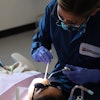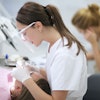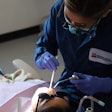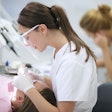Clarifying a March 26 press release, the Wisconsin Dental Association (WDA) said April 12 that it supports the licensing of expanded function dental assistants (EFDAs) but does not support the licensing of dental health aide therapists (DHATs) in Wisconsin.
The original press release was in response to a report by the state's Department of Health Services, analyzing ways the state could improve access to care. New types of dental professional were among the report's several recommendations. The report defined the two categories of professionals as follows:
- EFDAs "assist dentists [to] provide reversible restorative and prosthetic services such as inserting and carving filling materials and taking impressions used in prosthetics."
- DHATs "work under direct and indirect dentist supervision and provide irreversible procedures such as the restoration of teeth, minor surgery, etc."
The report also stated that EFDAs may already be legal in Wisconsin and, if so, technical colleges should begin training assistants to fulfill an expanded role. Regarding DHATs, it states, "Although controversial, these new auxiliaries are likely to become part of the dental team, and now is the time to plan for their impact on access, the number and types of dentists needed in the state, etc."
The March 26 press release stated that "the WDA agrees with the findings of the Department of Health Services' recently released Oral Health Education Study and its recommendation to pilot a program in which a dental benefits administrator would be hired to focus on delivering oral healthcare to Medicaid recipients."
That press release didn't discuss the issue of midlevel providers directly. In its new statement, the WDA emphasizes that it would like the state to increase access to dental care through increased funding of the state's Medicaid and BadgerCare programs. (BadgerCare includes federal funding from Medicaid and the Children's Health Insurance Program with state funds.)
The WDA also supports loan forgiveness for dental school graduates who settle in underserved areas, allowing hygienists to practice in more settings, and removing an HMO program from dental Medicaid in Southeastern Wisconsin.
Copyright © 2010 DrBicuspid.com



















